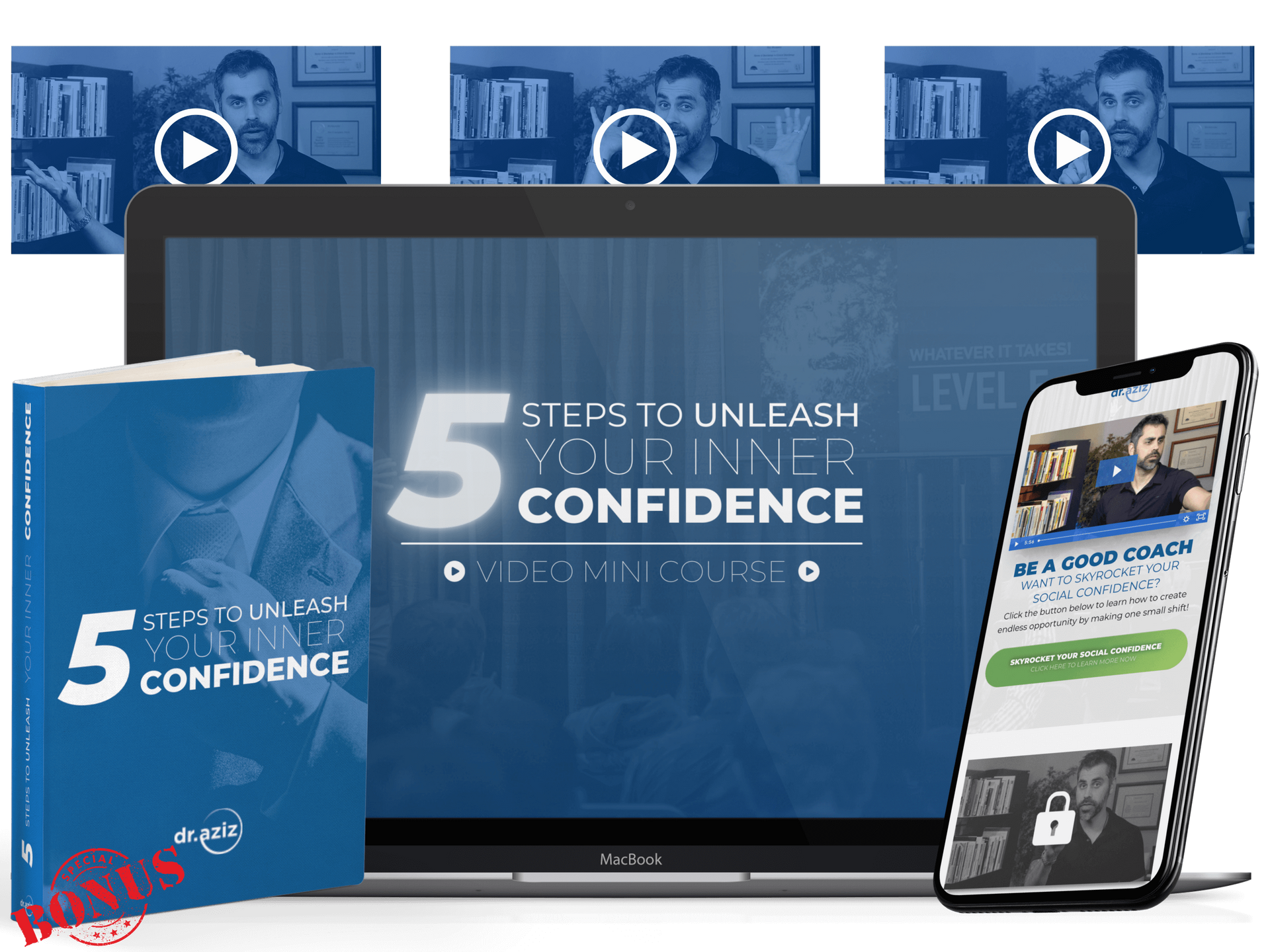Why Do I Feel Anxious When I Stand Up For Myself?
Aug 21, 2022Do you constantly shy away from standing up for yourself?
Does the very idea of freely speaking your mind make your stomach turn?
Have you ever stopped to consider why you feel so much anxiety around this topic and what has been creating that inner tension?
What are you so afraid of?
Today, we’ll be discussing this very subject as the kick-off to a short series aimed at the importance of standing up for yourself.
Most of us are so busy trying to be the “nice guy” that we can’t see how this leads to an inability to stand up and fight for what we want in life.
After all, if you’re always worried about what everyone else thinks about you, you will never live for your own happiness. That is why standing up for yourself is such a necessary skill and why such a large portion of my work is directed toward teaching people to be more assertive, direct, and authentic.
So, why do we let a fear of what other people think of us stand in the way of achieving those goals?
Well, for most of us, conflict can be scary. We are terrified that disagreeing with someone will lead to an argument or get us fired or—worst of all—upset someone. If we all knew that a difference of opinion would lead to both parties saying, “Oh, well, it’s no big deal—we just disagree, and there’s nothing wrong with that,” then nobody would fear authenticity. Yet so many of us struggle to show our real selves because we’re constantly assuming that a difference of opinion will lead to anger or resentment or animosity . . . which, in our minds, will also lead to the end of that relationship.
Fact: disagreements do not have to become permanent hatred.
We do not have to be slaves to our “niceness.”
Too often, we cower in the shadow of our most authentic selves because we’re worried that authenticity will inspire people to attack us or cancel” us or seek retribution. Subconsciously, it makes us feel unsafe.
In order to move past this feeling of insecurity, we must figure out what specific event/s in our lives created it. If this is something that you want to dive into head-first, then you should check out my book, Not Nice, which takes a hard look at the mental conditioning toward being nice while guiding you through the steps to relieve yourself of those destructive patterns.
In the meantime, though, let’s look at the most typical cause of our need to be nice. For many of us, it goes back to the way we were programmed in childhood:
– Don’t do that—it’s not nice!
– Nobody asked for your opinion!
– Keep your mouth shut and do what I say . . . because I said so!
Maybe a parent got angry with you for being too headstrong; maybe you never saw healthy assertive behavior displayed by an adult; maybe your voice was always ignored. In any case, you were quickly trained to believe that speaking your mind and being assertive did not lead to great things.
As an added bonus, maybe you saw unhealthy conflict (emotional, psychological, or physical abuse) going on around you, and it terrified you. Fast-forward 20, 30, or even 50 years, and false equivalency has you running for the hills at the slightest disagreement.
Because of that childhood programming, you’ve spent your entire life avoiding ANY conflict at all costs.
Unfortunately, that fear has been so deeply ingrained that it will be there forever . . . unless you’re willing to do something about it.
No matter how old you are, it’s never too late to address the issue, confront it head-on, and work to change it. That said, these changes take work. We can’t just wish ourselves free of fear—we have to work ourselves free of it every single day.
You are not a bad person for wanting a better future for yourself.
It is not wrong to want to gain confidence and be the best possible version of yourself—the version of you who lives without the fear of guilt or blame.
You CAN say no to people; you CAN speak your mind freely.
You CAN disappoint people once in a while.
You CAN be direct and ask for what you really want out of life.
You can do all of this and more without feeling like you need to constantly apologize for it and that doesn’t make you a bad person!
So many of us live life handcuffed to an insane list of dysfunctional rules that are not serving us.
Any woman who’s ever been called a bitch for acting exactly as her male counterpart would have acted knows exactly what I’m talking about.
Being a good person isn’t about always saying “Yes,” plastering a smile on your face, and never stepping out of line. Sure, there are times and places for these actions, but in order to live a healthy, balanced, and fulfilling life, you MUST also learn to stand up for yourself and what you want.
Step one on that journey is to pinpoint the moments from your past that brought on this “niceness conditioning” and to work over the next few days, weeks, or months to recognize the triggers that reinforce it in your everyday life.
Now, most of you probably know that I’ve spent most of the last two decades committing myself to the study of confidence and how to guide the development of it in myself and others. Specifically, over the last six years, I’ve been working like an obsessive mad scientist, running specific group programs with an eye toward fine-tuning the techniques and practices that I’ve developed so that I can learn to produce faster, better, more profound results.
My ultimate goal is to create a repeatable process of confidence transformation that can be accessed by anyone, anywhere in the world. The results we’ve been getting so far have been amazing. If you’d like to check out the resources my team and I have created, you can visit DrAziz.com to learn more about it.
Since you’re here reading this post, however, you can start more simply, and challenge yourself to get curious about these mental patterns in yourself.
To begin with, start a journal that focuses on your behavior and thought patterns when it comes to standing up for yourself: ask yourself why you’re anxious in any given moment; explore your feelings and fears around various daily conflicts; perhaps note how the words and actions of others affect your behavior.
The more you dig and uncover, the more clarity you will gain in realizing that your fears, perceptions, and anxieties are learned behaviors.
To study yourself can be exceptionally liberating. Once you realize what is learned—versus what is inherent—you realize that you can UNLEARN IT.
You can learn to let go of the conditioning that is holding you back.
You can radically upgrade the precepts by which you live your life.
You can create a new identity that allows for conflict, direct conversations, and deeper relationships.
This is just the tip of the iceberg—there is so much more here for you to uncover!
I hope you’ll continue to join me for this series on standing up for yourself. Before you go, please share your thoughts and questions in the comments below.
Until we speak again, may you have the courage to be who you are and to know on a deep level that you’re awesome.
Reading blogs and watching videos online is a start...
When you are ready to radically transform your confidence so you speak up freely, boldly go after what you want, connect easily with others and be 100% unapologetically yourself, coaching is the answer.



